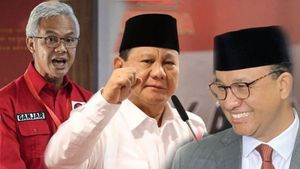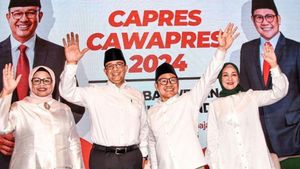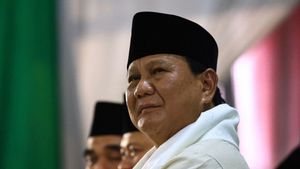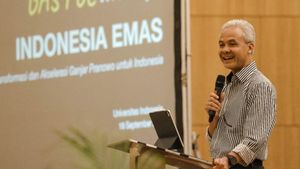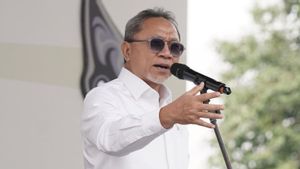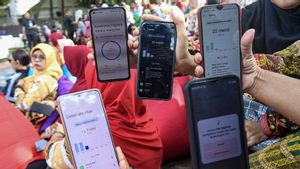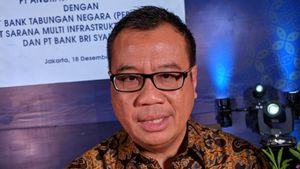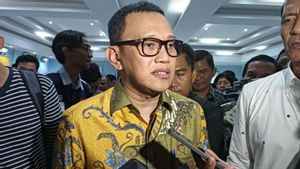JAKARTA - The government has set a total of national holidays and collective leave for 2024. As stated in the Joint Decree of the Three Ministers, there will be a total of 27 national holidays and collective leave. The details are 17 national holidays and 10 days of collective leave.
This number still has the potential to increase by two days if collective leave is applied to the election in two rounds. So there is a possibility that there will be 29 days of holidays and collective leave next year, aka almost a month.
The announcement of this joint leave received a positive response from tourism business actors. However, it is hoped that this holiday and collective leave will not change suddenly next year because it is considered to be detrimental to various parties.
Announcement of holidays and collective leave that was carried out in advance was greeted positively by a number of parties, including those engaged in the tourism sector. Holidays and collective leave are believed to boost the regional economy considering the increase in visits to the regions, both in order to return to their hometowns and ordinary tourism.
Those who will be positively affected from holidays and collective leave are the regional economy. With the collective holidays and leave, regional economic growth can be increased. Many people travel to the regions, for example going home or returning home," said public policy observer Trubus Rahardiansyah to VOI.
When many people return to their hometowns, tourist areas will be crowded, then food consumption in these areas also increases, because normal days are quiet. They will experience the harvest from an economic point of view," he said again.
The increase in the regional economy is also further helped following the increase in the salaries of the State Civil Apparatus (ASN) next year. As is known, President Joko Widodo announced that he would increase the ASN salary by 8% while the salary for retired civil servants increased by 12%. Along with the increase in ASN salaries, it is not impossible to be directly proportional to the increase in public consumption, according to Trubus.
"The welfare of the people in the regions can also increase following the increase in ASN salaries next year. This can encourage increased household consumption, so as to benefit business actors," said Trubus.
The Deputy 1 DPP Association of The Indonesian Tours and Travel Agents (ASITA) Budijanto Ardiansjah also revealed the same thing. He hopes that additional holidays from the government will increase public interest in traveling. Thus, the addition of collective leave holidays will have an impact on the growth of the national tourism industry.
"We hope that people can travel more, of course for domestic travel," said Budi.
"Our hope is that it will have a positive impact. Because the tourism sector has a big domino effect, there will be many who will benefit, especially those at the lower level, such as MSMEs and so on, local communities as well," said Budi.
Despite having a positive impact in the tourism sector and boosting the regional economy, the increase in the holiday period and collective leave will have an impact on labor-intensive industries, especially manufacturing, as stated by CORE Director Mohammad Faisal. Productivity in manufacturing which is very dependent on production day, so that thepotential loss increases if the collective leave is getting longer.
Manufacturing depends on daily production, so there are leave and others, actually not only the availability of labor activities, but also unused machines, and others. There are several opportunities lost on leave day compared to production day," said Faisal.
However, potential loss can be anticipated if the rules of holidays and collective leave are carried out in a planned manner so that the company can make adjustments in advance. In addition, according to Faisal, the joint leave announced by the government for some time is not binding for private companies, but only as a recommendation. This is said to help minimize the possibility of excessive losses.
"One important thing that can be a middle ground, must be clear from the start so as not to interfere with business planning and manufacturing production," Faisal added.
"Personators of the private sector can choose (follow the recommendations of collective leave or not), so as not to interfere with activities, and minimize excessive cooperation loss, which may be experienced like the manufacturing industry," said Faisal again.
At the same time, the Head of Inter-Apindo Institutional Relations, Sarman Simanjorang, hopes that next year's holiday and collective leave will not change so that the planning carried out by manufacturing indicators does not miss, while licensing services in the business world also do not experience problems.
"There should be no more changes next year, unless next year's election is two rounds that are inevitable," said Sarman.
In addition, various licensing services in the business world do not experience problems. There are many business needs, one of which is licensing problems, and hopefully they will not be disturbed. The government must guarantee that this long holiday will not interfere with services to the community and to the business world in this case," said Sarman added.
اقرأ أيضا:
Regarding the possibility of adding joint leave because of the election which has the potential to take place in two rounds, Faisal suggested a middle ground.
"If there are two rounds of elections, it is necessary to find a middle way, for example half a day off. So that production does not decrease and public services remain in effect," said Mohammad Faisal.
The English, Chinese, Japanese, Arabic, and French versions are automatically generated by the AI. So there may still be inaccuracies in translating, please always see Indonesian as our main language. (system supported by DigitalSiber.id)



